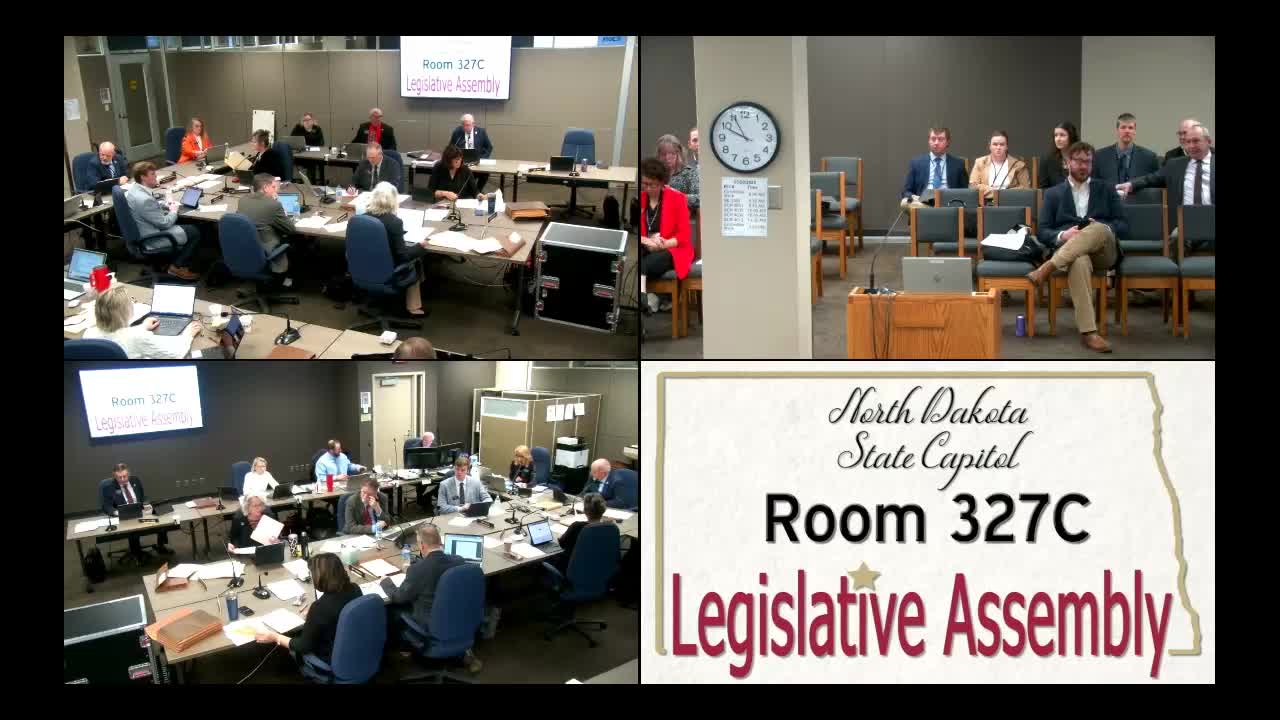Committee hears landowners' push to allow termination of historic Fish and Wildlife perpetual easements
Get AI-powered insights, summaries, and transcripts
Subscribe
Summary
Landowners, farm groups and commodity organizations told the House Agriculture Committee they support asking Congress to permit buyouts or termination of long-standing U.S. Fish and Wildlife Service perpetual easements; conservation groups and attorneys cautioned against broad cancellation and warned of legal and practical consequences.
Senate Concurrent Resolution 4,002, which would urge Congress to allow landowners to terminate perpetual easements held by the U.S. Fish and Wildlife Service in North Dakota, drew long testimony on property rights, conservation and legal precedent but the committee did not vote and deferred further action.
Sen. Cole Conley introduced the resolution and described instances where families accepted small one-time payments decades ago in return for easements that, he said, remain in perpetuity and limit agricultural activity. "You will notice that my relatives received a one-time payment of $680 in 1970," Conley said, describing his motivation to seek an option to reclaim flexibility on affected land.
Ranching and farm organizations supported the measure as a private-property-rights fix. Julie Ellingson of the North Dakota Stockmen’s Association told members perpetual easements "often rob future generations of their property rights and their ability to make the best management decisions for those parcels." Lance Scabey of the North Dakota Farmers Union testified that the union’s policy calls for renegotiation of wildlife easements every 15 years upon ownership changes and said Fish and Wildlife Service easements are an exception to state practice limiting perpetual instruments.
Commodity groups also backed federal reconsideration. Dan Wagsland of the North Dakota Grain Growers and Pete Hanover of North Dakota Farm Bureau both asked the committee to advance the resolution so Congress could reconsider older, perpetual easements.
Opponents and cautions came from legal and conservation perspectives. Bismarck attorney Paul Meyer warned the committee that allowing termination of easements by landowners would set a precedent that could invite challenges to other kinds of easements, such as road, pipeline, wind and solar easements, and create legal uncertainty for title and for industries that rely on long-term easements. "The problem that I see from a legal standpoint is the bad precedent," Meyer said.
Conservation groups echoed concerns. Zach Cassidy of Dakota Resource Council said the easements function as contracts and warned that letting owners unilaterally exit those contracts could harm conservation on private lands. Cassidy noted the resolution’s repayment mechanism — returning the original payment amount in some versions — would be far below current market value and represent poor taxpayer value if the federal government were to repurchase interests.
Committee members asked practical and legal questions about how many acres were affected, whether some easements overlap with NRCS wetlands and whether there is an existing legal remedy to challenge historical easements. Senator Conley said some easements were “less than 5 acres” in examples he provided and acknowledged that outcomes vary depending on when the easement was granted. An attorney testifying noted the state statute (cited as North Dakota Century Code 47-05-02.1) limits certain perpetual easements after 1977 but that older federal easements predate the state limitation and have been the subject of prior legal review.
The committee discussed procedural options, including referring the resolution to appropriations for review and placing it on the consent calendar, but ultimately postponed formal committee action until the afternoon session to allow members additional time to review testimony and staff materials. Representative Novovich proposed re-referral to appropriations but later agreed to hold the item until later in the day.
Ending — Committee members pledged to study testimony and legal background before acting. Backers asked for a route to restore management flexibility to landowners who feel constrained by decades-old easements; opponents urged caution, citing contract law and potential unintended impacts on infrastructure and conservation programs.
